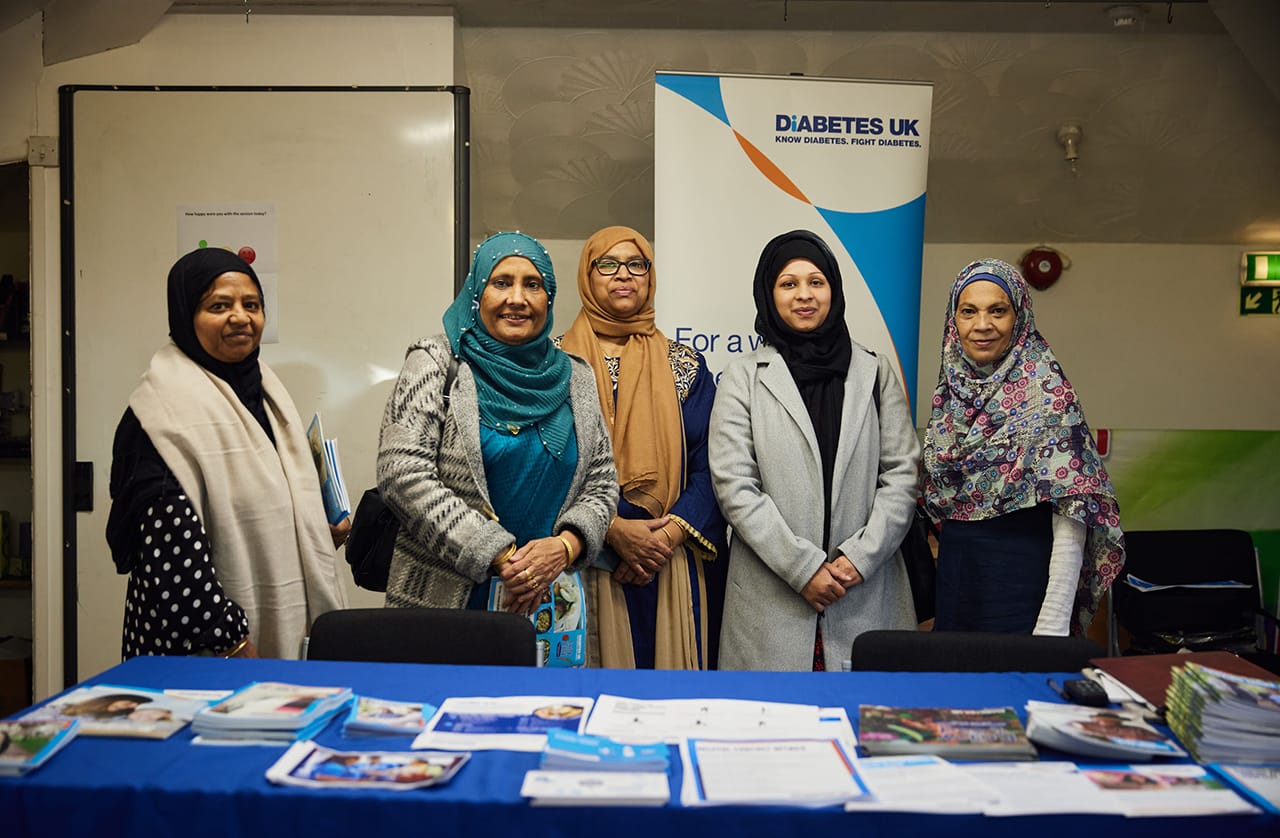
When Diabetes UK and the Arora Foundation first met to discuss the ball in 2020, DUK presented three examples of areas in which the funds raised would be used. Unfortunately, the pandemic meant the event was delayed until November 2022. Nevertheless, the planned use for the funds remained, and ultimately helped the charity achieve significant impact throughout the UKs Diabetes community.
Diabetes UK Helpline
Between 2020 and 2023, there was a considerable increase in the level of support provided by the Diabetes UK helpline, as it became a focal point for information and advice to those across the UK living with the condition, their family and friends.
In 2020, approximately 15,000 calls, emails and enquiry forms were received. By the end of 2023, that total had risen to a staggering 156,000 for the calendar year, with the leading themes for support demonstrating the vital nature of the helpline in helping people to cope from day-to-day.
The funding received because of the incredible generosity of the Arora Foundation in 2022, helped Diabetes UK maintain its intensive support for those living with the condition during 2023.
Research
We are pleased to highlight two projects from our extensive research programme, made possible through the generous support of the Arora Foundation.
1. DiRECT Study:
The DiRECT Study tests whether an intensive, low-calorie, GP-delivered weight management programme can put people with type 2 diabetes into remission, meaning their blood sugar levels return to the non-diabetes range without needing glucose-lowering medication.
New results show that, for some participants, it is possible to stay in remission for at least five years. In the extension study, 13% of participants who continued receiving support remained in remission at five years. Even when remission is temporary, participants benefit from improved blood sugar levels, reduced medication use, and lower body weight.
We’re proud that DiRECT’s findings have already influenced diabetes care, inspiring the NHS Type 2 Diabetes Path to Remission Programme, a joint initiative between Diabetes UK and the NHS. This year-long programme provides a carefully supported low-calorie diet to people recently diagnosed with type 2 diabetes who are living with obesity. As this is rolled out across England, we’ll get more valuable real-world data on weight loss, remission, and its benefits for people newly diagnosed with type 2 diabetes.
Building on this success, Dr Pooja Sachdev is exploring whether a similar low-calorie approach could help children and young people with type 2 diabetes achieve remission. With childhood type 2 diabetes cases rising sharply, this research could pave the way for a much-needed new treatment and a healthier future for the next generation.
2. Blood vessels in a dish to tackle diabetes complications:
High blood sugar levels can damage blood vessels, and over time this can lead to serious diabetes complications such as heart disease, stroke, kidney damage, and sight loss. Professor David Long’s project is advancing a pioneering method to grow human blood vessels in the lab, allowing researchers to study how high blood sugar levels damage vessels and contribute to diabetes complications. By exposing these lab-grown vessels to conditions found in diabetes and using advanced imaging and single-cell sequencing, Professor Long and his team aim to uncover the molecular and structural changes that occur. This research could accelerate the development of targeted treatment to protect or repair blood vessels, helping to prevent complications and ultimately improving health outcomes for people living with diabetes.
Community Working
A key feature of Diabetes UKs strategy is to reach the heart of communities across the UK, and ensure the right support is available to those who need it, when they need it.
Our Community Champions are a vital component of that aim, working in a voluntary capacity to help Diabetes UK achieve positive outcomes. They provide support to those newly diagnosed with Type 2 diabetes by giving them the solid foundations they need to live with diabetes. They also help educate and raise awareness of diabetes and Diabetes UK amongst people from Black African, Black Caribbean, and South Asian ethnic communities across the country. Since the beginning of 2023 we’ve recruited 50 additional Community Champions and their expertise has specifically helped us support those most in need in those minority ethnic communities and ensure everyone gets the support and care they need, thereby reducing the inequality in healthcare. During that period, the funding provided by the Arora Foundation helped Diabetes UK support the volunteers who signed up as Community Champions, ensuring they received the right training and support to help us make a meaningful impact.
We've also used the Community Champion model to inform a new, broader volunteer role at Diabetes UK - a Diabetes Champion - that will bring the elements of community-based support and information alongside broader awareness-raising, challenging stigma and helping the newly diagnosed.